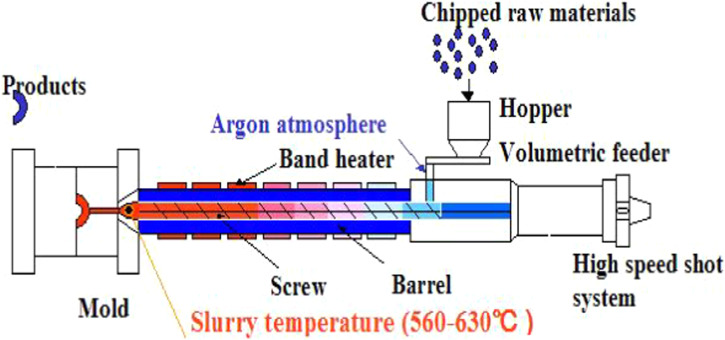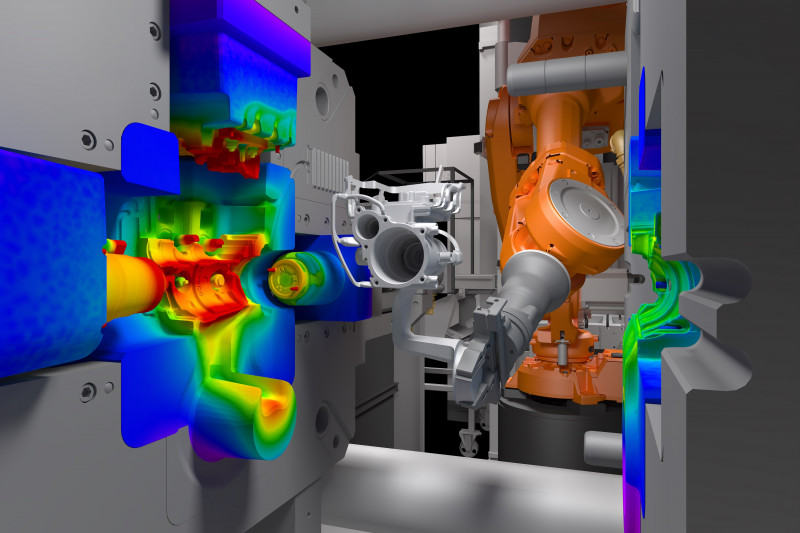Introduction
With the advancement of technology, various manufacturing techniques have been developed to meet the increasing demands in industries. Squeeze casting, also known as liquid metal forging, is one such revolutionary technique that combines the benefits of casting and forging processes. This article aims to provide an overview of squeeze casting, its advantages, applications, and future prospects.
What is Squeeze Casting?
Squeeze casting is a manufacturing process that involves injecting liquid metal into a preheated die cavity and applying a controlled amount of pressure during solidification. The pressure helps in filling the mold completely while reducing the formation of defects, such as porosity and shrinkage.
Advantages of Squeeze Casting
1. Improved Mechanical Properties: Squeeze casting produces components with superior mechanical properties compared to conventional casting methods. The controlled pressure applied during solidification ensures a homogeneous microstructure, finer grain size, and increased strength.
2. Reduced Porosity: Porosity is a common defect in castings that can compromise their integrity. Squeeze casting minimizes porosity formation by eliminating air entrapment during the filling process, resulting in components with higher density and improved performance.
3. Enhanced Surface Finish: The application of pressure in squeeze casting helps in achieving a better surface finish of the castings. This eliminates the need for additional machining operations, saving time and costs in the production process.
4. Design Flexibility: Squeeze casting allows complex geometries and thin-walled sections to be manufactured with ease. The process enables the production of intricate shapes, which may not be feasible using other manufacturing techniques.
Applications of Squeeze Casting
1. Automotive Industry: Squeeze casting finds significant applications in the automotive industry, especially for manufacturing engine components such as pistons, connecting rods, and cylinder heads. These components require high strength, excellent heat resistance, and dimensional accuracy, which can be achieved through squeeze casting.
2. Aerospace Industry: The aerospace industry demands components with high strength-to-weight ratio, excellent fatigue resistance, and dimensional stability. Squeeze casting fulfills these requirements and is commonly used for producing turbine blades, aircraft landing gear, and structural components.
3. Defense Sector: Squeeze casting is extensively used in the defense sector for manufacturing military-grade components, including artillery shells, gun barrels, and armor plates. The improved mechanical properties and reduced defects make squeeze cast components ideal for such critical applications.
Future Prospects
Squeeze casting has gained significant attention in recent years due to its numerous advantages over traditional casting processes. Researchers and manufacturers are constantly exploring new ways to optimize the process and expand its applications. Some areas of ongoing research include the development of new alloys suitable for squeeze casting, process optimization for increased productivity, and the integration of computer simulations to enhance the design capabilities.

Conclusion
Squeeze casting is a revolutionary manufacturing technique that combines the advantages of casting and forging processes. It offers improved mechanical properties, reduced porosity, enhanced surface finish, and design flexibility. The automotive, aerospace, and defense sectors are the primary beneficiaries of this technique. With ongoing research and development, squeeze casting is expected to continue making significant contributions to the manufacturing industry, opening up new possibilities for the production of high-quality components.
-

- Magnesium alloy thixomolding components
-

- Magnesium alloy die-casting rigid fork for bike
-

- Magnesiumseoksesta painevalu Auton osat RDM-kotelo
-

- Lasten polkupyörät Lasten pyörät 3-16-vuotiaille lapsille / OEM-vauvoille lapsille pyöräillen lapsille maastopyörät 2022
-

- Magnesiumseoksesta painevalu Auton osat Etupuskuri Törmäyksenestopalkki
-

- Magensium mountain bike frame

 0086-750-5616188
0086-750-5616188 +86 13392089688
+86 13392089688 sales@zhongmei-tech.com
sales@zhongmei-tech.com







